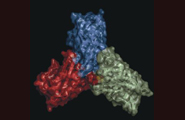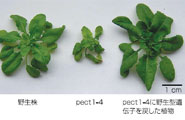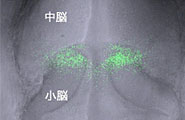Program in Life Science
The 21st Century is the century of the biological sciences. Research on living organisms has become ever more important as scientists explore biology at the molecular, cellular, organismal, and supraorganismal levels. These levels are interconnected through a complex network that supports the essential functions of life. In order to foster comprehension of diverse biological phenomena, the following topics are emphasized in this programs structure and maintenance of DNA (the carrier of genetic information); the composition and function of membranes and cell organelles; the transmission of genetic information; the regulation of gene expression, and homeostasis in living organisms. Through the elucidation and understanding of these biological processes, students acquire the education and experience needed to engage in original and creative research at a high level and the specific knowledge and insight required to pursue varied professional opportunities in the life sciences.
Course in Biochemistry and Molecular Biology

Iron sulfur cluster biosynthesis machinery center element and crystal structure of IscU

The Arabidopsis mutant pect1-4 exhibits dwarfism at low temperature.
In the Course in biochemistry and molecular biology, the student learns how to analyze the activity of biomolecules, genes and cells based on genetic information. Research conducted in biochemistry and molecular genetics includes the investigation of the role of sigma factors and the two-component phosphorelay systems in gene expression and regulation based on the genomic data of Escherichia coli and Bacillus subtilis, genetic and cell biological research on the physiological functioning of microbial lipid membranes, studies of genetics and cellular evolution, which use primitive rhodophyta (red algae) as the model organism, and research on the activation, identification and genetic analysis of cell wall related enzymes in higher plants. Topics of research in molecular and cellular physiology include the response of blue-green algae and higher plants to stress (dehydration, heat, low temperature, freezing, intense light) and their resistance under these conditions, the mechanisms of the biosynthesis of membrane lipids, their intracellular transport and physiology, basic research to improve the productivity of oil producing plant, analysis of the functioning of transport proteins in the cell membrane and regulation of gene expression in CAM (crassulacean acid metabolism) photosynthesis.
>> To Course in Biochemistry and Molecular Biology
Course in Regulatory Biology

Light micrograph of the brain of a zebrafish embryo that expresses a flourescent protein on the border between the mesencephalon and the cerebellum.
The Course in regulatory biology comprises the three areas of physiological function, biological information flow, and adaptation of the living organism. Research is conducted on control mechanisms in the nervous system and endocrinology of mammals and on their behavior, learning, and aging. Propagation and differentiation of cells is studied in cell cultures, the development, differentiation and the mechanisms of adaptation to the environment are studied in insects, and the structure and function of novel and useful proteins is investigated. In the area of biochemical information and regulation, topics include the mechanism of gene expression, DNA repair and cell death, the molecular developmental biology of both vertebrate and invertebrate animals, and the investigation of the regulation of gene expression during development. In the field of biological adaptation, research focuses on responses of organisms to the environment, including stress responses, the mechanisms of signal transduction, the analysis of cell differentiation and the process of morphogenesis via tissue cultures, and the relation between ultrastructure and function in plant cells. From the professors who teach regulation biology, students will not only receive instruction in the form of lectures, but also, while gaining cutting-edge knowledge of the field, acquire the necessary investigative strategies and a wide variety of skills to conduct scientific research on their own.